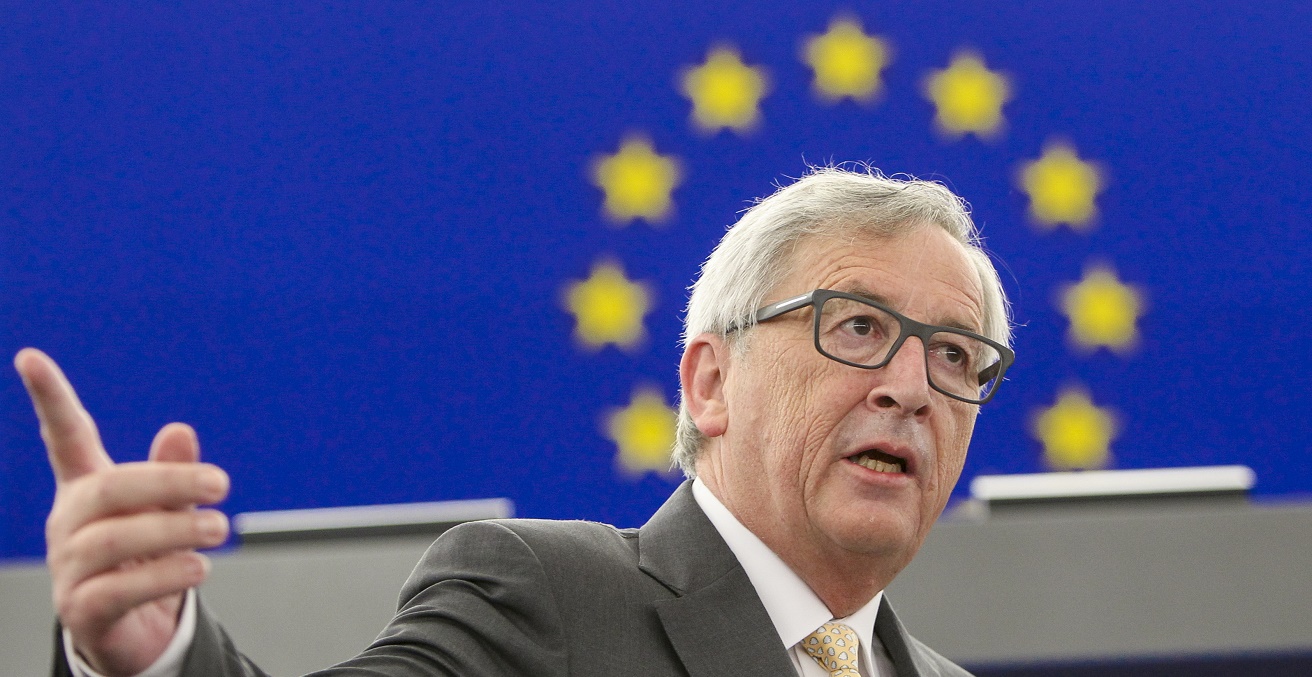Australia First Up for New EU Express Trade Deal

An Australia-EU trade agreement may be completed within two years after Australia was announced as one of the first to benefit from new fast-tracked EU trade deal negotiations.
In the EU State of the Union address on 13 September, EU Commission President, Jean-Claude Juncker, announced a new fast-track system to ensure Brussels can strike quick trade deals. Juncker explained that the first targets for streamlined agreements will be Australia and New Zealand, with the goal to finalise the two deals by the end of his mandate in October 2019, much ahead of the expected timeline.
As anticipated in July by the European Trade Commissioner, Cecilia Malmstrom, this new negotiating approach splits trade from investment for all future trade deals to reduce the say of national parliaments. The new approach follows a formal EU Court of Justice opinion in May, the so called Singapore ruling. The ruling established that all trade matters except the regime governing dispute settlement and non-direct foreign investment (meaning portfolio investments made without any intention to influence the management and control of an undertaking) fall under the exclusive competence of the EU Commission. Such a move removes the need for the endorsement of national and in some cases even regional governments.
The goal is to avoid the trap of local politics hindering the broader trade strategy as happened recently in the case of the EU-Canada Comprehensive Economic and Trade Agreement (CETA) which was vetoed and stalled for months by the legislative assembly of the Belgian region of Wallonia. Essentially, if this were the system in Australia, it would be as if the Tasmanian government were able to veto a trade deal between Australia and the EU.
Splitting investment from trade
With the continuing backlash against globalisation, new economic partnerships are being opposed on the grounds that these allow big corporations to sue governments that allegedly impinge on their market access and foreign investment rights. This is called investor-state dispute settlement (ISDS) and is fiercely opposed by anti-trade groups from both left and right of domestic politics. In this regard, Australia has narrowly escaped, mostly thanks to technical issues in the claims brought by Philip Morris against the legislation of plain packaging tobacco products for public health protection.
Riding the Brexit-Trump wave of anti-trade narratives in the Western world, mainstream political actors in Australia and New Zealand, including to some extent the unions and the Labor Party, have also vowed to change tack in trade policy and thus renege on or oppose deals that include ISDS provisions.
Splitting investment from trade will match the wishes of the labour parties in both Australia and New Zealand, making it easier to leapfrog the partisan divide on future trade policy and to enable quick trade deals with the EU. This is a lucky turn for Australia and New Zealand as finalising an EU deal by 2019 will allow them to focus on their UK economic partnerships post-Brexit within an ideal time frame and from a very strong negotiating position.
For Australia and New Zealand, the main obstacle to accepting the EU split system is the requirement that the EU trading partners support a multilateral investment court. This newly proposed international court would deal with the politically controversial issues of investor-state disputes in a manner similar to the existing dispute settlement mechanisms in the World Trade Organization.
However, pundits expect this new international court will only come into operation after a decade, if at all. In the interim, the absence of investment provisions risks hollowing out the business interests of new trade deals, making these less economic and more geopolitical in nature.
Australia’s and New Zealand’s approach
Australia and New Zealand have still not expressed a clear position on the multilateral investment court proposed by the EU, and they are basically sitting on the fence while two of their key economic partners in the Asia Pacific, the US and Japan, have already opposed the initiative.
Nevertheless, quickly clocking up trade deals with the EU is poised to tip both Australia and New Zealand over to the European stance. It remains to be seen whether this will create a tricky precedent and unsavoury expectations from future trade partners, especially in Asia and Latin America.
On the face of it, accepting the EU split between trade and investment is a no-brainer for Australia and New Zealand, as the existing legal protections for foreign firms in the European common market are consistent with domestic standards, and thus will not create unnecessary disadvantages to Australian and New Zealand businesses.
However, the story is very different when it comes to non-direct foreign investment in emerging countries where the rule of law is not particularly strong and domestic economic policies are rather protectionist. This is especially challenging if similar expectations for splitting trade and investment regimes arise in large regional trade agreements currently under negotiation with Southeast Asian partners (RCEP) and in Latin America (within the Pacific Alliance, including Chile, Mexico, Colombia and Peru).
Dr Giovanni Di Lieto lectures in international trade law in the Bachelor of International Business program at Monash University.
This article is published under a Creative Commons Licence and may be republished with attribution.





